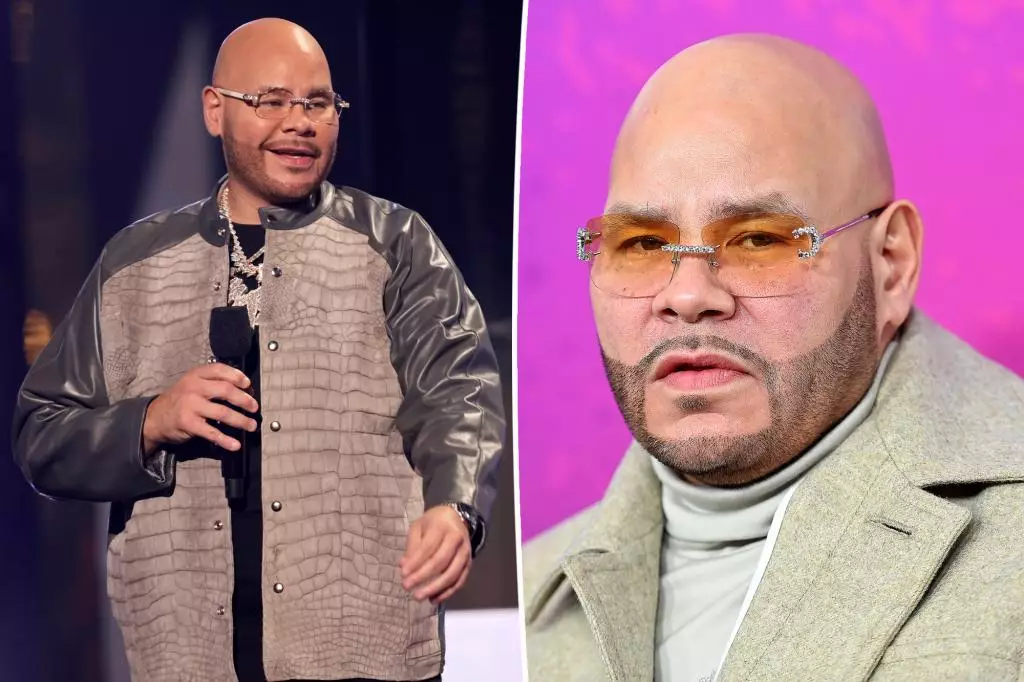In a shocking twist of events, veteran hip-hop artist Fat Joe, known for his chart-topping hits and larger-than-life persona, finds himself at the center of a $20 million lawsuit that raises serious and troubling questions about his conduct. The allegations, brought forth by his former hypeman Terrance “T.A.” Dixon, depict a narrative that involves disturbing claims of sexual improprieties with minors. This situation not only tarnishes the reputation of a well-known public figure but also reflects the broader societal issues of accountability and exploitation within the entertainment industry.
Dixon has alleged that he personally witnessed Fat Joe in sexual relations with minors, including a 16-year-old Dominican girl who purportedly engaged in sexual acts with the rapper in exchange for cash, clothing, and cell phone payments. The stark revelations do not end there; Dixon also points to a minor with whom Fat Joe allegedly began a relationship after a concert overseas when she was merely 15 years old. This claim is further complicated by the assertion that Fat Joe flew the girl across the country and even funded her Brazilian Butt Lift, indicating a pattern of behavior that raises ethical and possibly legal questions.
The Tug-of-War of Accusations
What makes this legal battle particularly complex is the mutual exchange of accusations between Dixon and Fat Joe. The rapper’s attorney, Joe Tacopina, has vehemently denied the allegations, labeling them as exaggerations and claiming that Dixon was attempting to garner attention through unfounded claims. Tacopina’s assertions that the women involved have denied any wrongdoing on Fat Joe’s part further complicate the narrative. The world of entertainment often thrives on scandal, and Dixon’s insistence that these claims stem from long-standing grievances over underpayment and denial of credits paints a picture of a bitter fallout between a star and his former collaborator.
Dixon’s accusations do not merely stop at the severe claims of sexual misconduct but extend into realms of coercive labor exploitation and financial fraud. The multilayered nature of this lawsuit points not just to an event but also to a system that may prioritize monetary interests over the welfare of individuals, particularly those who are young and vulnerable. This dual narrative of victimization and exploitation is what makes such stories so troubling, as they reflect both personal betrayals and the systemic issues present in the entertainment industry.
The Legal and Moral Repercussions at Play
The intricacies of this legal dispute raise pressing questions about responsibility within the entertainment sector. Fat Joe, a Grammy-nominated artist, stands at a crucial juncture where his actions, both alleged and real, could significantly impact his legacy and the trust audiences place in artists. By engaging in acts he vehemently denies, he could be squandering the hard-earned respect he built over decades.
On the other hand, this lawsuit serves not only to spotlight an individual but also emphasizes a broader conversation surrounding predatory behaviors that remain unchecked in the celebrity sphere. The power dynamics at play can exploit the naïveté of younger individuals yearning for fame, success, and validation, often resulting in serious breaches of trust and ethics. The conversation around the artists’ responsibility to protect rather than exploit reminds us of the societal obligations to safeguard the vulnerable.
A Look Ahead: The Impact of This Fallout
As this legal battle unfolds, the implications stretch beyond the courtroom. Dixon’s claims, whether substantiated or not, contribute to ongoing conversations around the accountability of public figures and the latent dangers that can lurk in the glamorous yet perilous world of fame. The scrutiny that Fat Joe faces not only has repercussions for his personal life but also sheds light on an industry often ripe for predatory behavior.
Amidst an ongoing cultural shift that is becoming increasingly intolerant of harassment and exploitation, the future of Fat Joe’s music career looms uncertain. Regardless of the lawsuit’s outcome, it is evident that the impact of these allegations will ripple through the industry, forcing both artists and audiences to critically engage with questions of ethics, responsibility, and the true cost of fame. The music industry must grapple with how to support and elevate their artists while ensuring that those in power do not exploit their position for personal gain. While Fat Joe may endeavor to clear his name, the shadow of these allegations may haunt him and serve as a wake-up call to others in the industry, urging them to confront uncomfortable truths.

